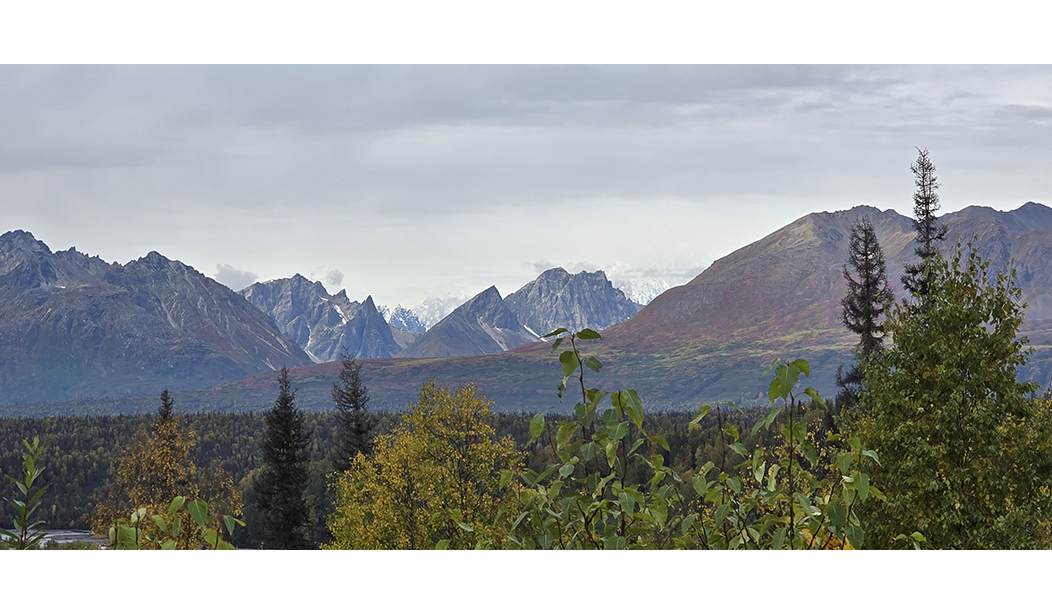Alaska, as I'm continually pointing out, is America's treasure chest. The Great Land's vast energy and mineral resources have been the subject of more hot air in Washington than all the volcanoes on the planet, and Democrats in particular have been insistent on treating Alaska like a giant national park: No development, anywhere, ever. That's changing now.
On Wednesday, the United States House of Representatives voted on and passed a resolution overturning a Bureau of Land Management rule that locked up 3 million acres of Alaska from oil, natural gas, and mineral development. The resolution now moves to the Senate.
The US House of Representatives on Wednesday passed House Joint Resolution 106, legislation introduced by Congressman Nick Begich to overturn the Bureau of Land Management’s Central Yukon Resource Management Plan.
The vote makes way for a 211-mile industrial-use road that would allow the development of the Ambler Mining District, a state mining district that is unreachable without access across federal land. The access to the mining district was guaranteed by law.
The first Trump administration issued a federal permit for the project in 2020, but the Biden Administration axed the permit.
Of course they did. And it's not as though this resolution opens up people's backyards in Anchorage to drilling; this is land mostly north of the Yukon River, a vast, sparsely populated area. Yes, there will be more signs of human activity in what is now a pristine wilderness. But our economy depends on oil, gas, and minerals; Alaska has a wealth of those, and when set against the vastness of the Great Land, the amount of land affected by development is pretty small. We are talking about a state, after all, where the distance from the panhandle to the end of the Aleutians is comparable to the distance from Boston to San Diego.
The Central Yukon RMP, finalized by the Biden administration in 2024, governs 56 million acres in north and central Alaska, stretching from the Brooks Range to the Yukon River. The plan set new restrictions on development by designating more than 3.6 million acres as “Areas of Critical Environmental Concern,” limiting leasing opportunities, and continuing longstanding land withdrawals.
The Biden plan put more than 13 million acres effectively off-limits, curtailing the state’s ability to pursue oil, gas, and mineral projects, harming Alaska’s economy and prevent the state from contributing to U.S. energy and mineral independence at a time when demand for critical minerals is rising globally.
The times, they are a' changing.
Read More: Energy Win: Alaska's NPR-A Is Open for Business
Winning! Big Drilling Lease Sales on for Alaska, Gulf of America
It's not clear as yet whether the 211-mile Ambler Mining District Road, described as an industrial road, will ever be open to private vehicle travel. If so, this would also open up this vast expanse to recreational use; there is doubtless some beautiful country, as well as great hunting and fishing in that area. But that, if it happens, is a fringe benefit.
Repeal of the Central Yukon Resource Management Plan will open up new areas for natural gas and petroleum extractions, as well as mining of critical minerals and other resources. Best of all, this repeal, if the Senate votes with the House, will go a long way towards paving the way for the Alaska Liquid Natural Gas (LNG) pipeline.
There is, as of this writing, no scheduled vote in the Senate on this resolution. Stay tuned.
Alaska is America's treasure chest. For many years, Democrats have been pushing to treat Alaska as a huge national park, forbidding any kind of development, anywhere in the Great Land. That's changing now. To stay abreast of all the developments, consider joining RedState VIP. Just use promo code FIGHT to get 60% off your membership.














Join the conversation as a VIP Member